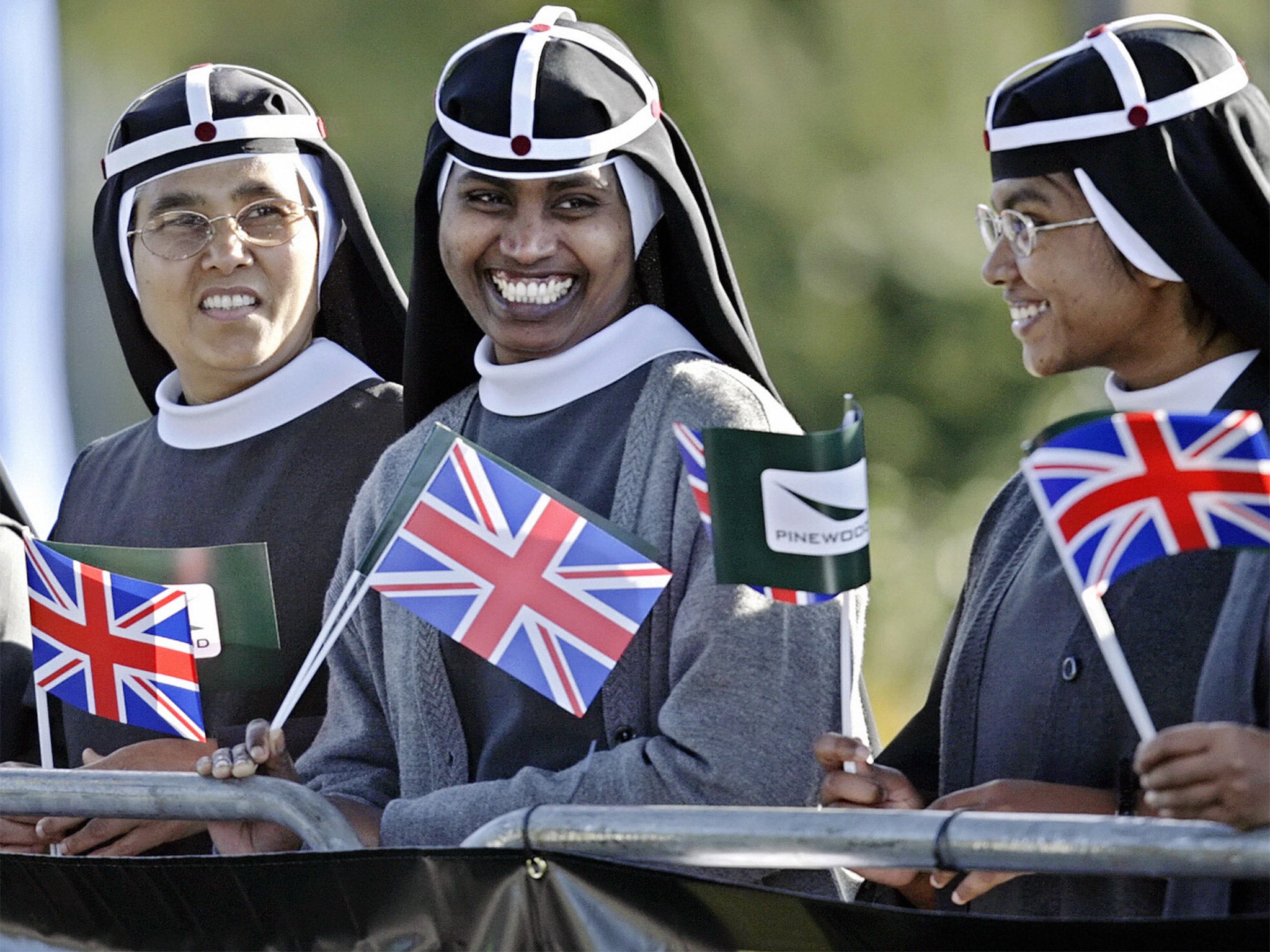Dissatisfaction with modern life prompts surge in number of women entering convents
However, the numbers remain small, with only 45 new nuns in 2014

Far from being put off by lives spent in prayer and without a partner, the number of women going into convents has risen six-fold in the past decade and is at its highest in 25 years according to new figures released by the Catholic Church. Dissatisfaction with modern society and a greater awareness of religious life through nuns offering ‘taster weekends’ are factors in the increase, claims the National Office for Vocation of the Catholic Bishop’s Conference of England and Wales. It describes religious life as “an attractive choice for an increasing number of educated and dynamic young and older women.”
Sister Cathy Jones, Religious Life Vocations Promoter at the National Office for Vocation, commented: “A key reason for this increase is the growth of a culture of vocation in the Church.” She added: “It is also significant that in recent years many religious congregations have grown in confidence in proposing their way of life, both through offering taster weekends and by participating in youth festivals, enabling potential ‘discerners’ to easily encounter religious and take the first steps to find out more about religious life.” And Father Christopher Jamison, director of the National Office for Vocation, said: There is a gap in the market for meaning in our culture and one of the ways in which women may find that meaning is through religious life.”
But the numbers themselves remain small – with women starting new lives in convents in England and Wales having risen from just seven in 2004 to 45 in 2014. Of those who entered religious life last year, 18 are ‘enclosed nuns’ who live within the confines of convents and can look forward to a life of solitude and prayer. An example of a traditional convent is the Benedictine Nuns of Holy Trinity Monastery, Herefordshire. A typical 15 hour day starts with early morning prayers at 5am, the first of several prayer sessions throughout the day. There is some respite after lunch, with “some free time for writing, hobbies or one of those little jobs that is always waiting to be done,” according to its website. The final prayer of the day is at 8.15pm, with “lights out” are at 11pm.
More than half of women who went into convents last year belong to ‘apostolic’ religious orders where they live and work in the community. And the surge in women going into convents comes amid a backdrop of decline in the Catholic Church, with the total number of women in religious orders of one sort or another in Britain having falling from 7,450 in 2003 to 5,567 in 2012. Although the overall yearly figure is at its highest since 1990, it is around half what it was a generation ago, when more than 80 women entered religious life in 1985.
Priests throughout Britain will drop to their knees this weekend and pray for more people to devote their lives to the Church. Pope Francis, in a message to mark ‘Vocations Sunday’ this weekend, is appealing to the young: “whose youth and openness to the future makes them open-hearted and generous” to dedicate their lives to the Church and “never be afraid to go out from yourselves and begin the journey!”
But Richy Thompson, campaigns manager, British Humanist Association said: “While the number of women entering convents may have grown from seven to 45, overall trends show that the religiosity of the country continues to decline. For instance, the latest British Social Attitudes Survey recorded 51% of the population as non-religious and 42% as Christian, compared to 31% and 65% respectively in 1983.” Average Sunday church attendance stands at just 5 five per cent of the population, he added.
Case Study
Theodora Hawksley
, 29, a former postdoctoral researcher in theology at the University of Edinburgh, joined the Congregation of Jesus earlier this year and lives in their convent in London. “Entering religious life was a decision born of love. It was an acknowledgement that my life has slowly and concretely rearranged itself around the love of God, and around that relationship as the one I prize above all else. In practical terms it means a different kind of a life. To me it means more freedom and more integrity.It’s hard to sum up a typical day. We live and work in the community and then come back in the evening and cook and eat together. Our order has a flexible approach to religious dress. If wearing a habit helps your mission, you wear it; if it doesn't, you don't. Our sisters in the UK don't wear a habit and just dress like normal people...although the vow of poverty means much of it comes from charity shops!”
Subscribe to Independent Premium to bookmark this article
Want to bookmark your favourite articles and stories to read or reference later? Start your Independent Premium subscription today.

Join our commenting forum
Join thought-provoking conversations, follow other Independent readers and see their replies